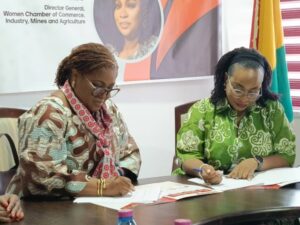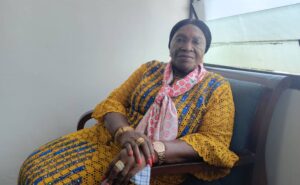…AGI-WIB, Nigeria’s WCCIMA partner to boost trade
By Juliet ETEFE ([email protected])
Business leaders have noted the absence of harmonised standards across African countries as a critical obstacle disrupting and slowing down the full potential of intra-African trade.
In view of this, the business leaders – particularly women entrepreneurs – have reechoed the urgent need for harmonised standardisation and supportive frameworks to unlock trade opportunities and deepen economic integration across the continent.
Though earlier media reports indicated efforts including an MoU between the African Organisation for Standardisation (ARSO) and African Continental Free Trade Area Secretariat focused on eliminating Technical Barriers to Trade (TBTs) that have restricted intra-African trade and undermined regional economic integration, the businesses are urging swift action as difficulties persists.
These concerns were raised at the signing of a Memorandum of Understanding (MoU) between the Association of Ghana Industries – Women in Business Chamber (AGI-WIB) and Women’s Chamber of Commerce, Industry, Mines and Agriculture (WCCIMA) of Nigeria, aimed at strengthening trade collaboration between women entrepreneurs across the two West African nations.
The MoU, signed at the AGI-WIB B2B Forum held in Accra on the theme ‘Creating a platform for sharing women’s trade experiences and exploring partnerships under AfCFTA’, is in line with strategic steps to unlock the potential of AfCFTA for women-led businesses and foster joint industrialisation, export development and mentorship across borders.

Chairperson of AGI-WIB, Dr. Mrs. Grace Amey Obeng, described this development as the beginning of a transformative journey for women in business across Africa – urging women to build a platform that empowers female entrepreneurs under the AfCFTA.
Delivering a remark on behalf of the Nigerian delegation, Dr. Weyinmi Eribo, Director General of WCCIMA, said the MoU is a historic milestone and the Chamber’s first official international partnership.
“This is a landmark MOU with AGI Women in Business, and it speaks to export development, manufacturing and industrialisation for women in Nigeria and Ghana. The idea is to use this as a stepping-stone to the rest of Africa,” she said.
According to Dr. Eribo, conversations held during the forum revealed immense potential for collaboration; from joint product development and trade missions to sharing expertise and expanding market reach.
“There is so much that Ghana has to offer and so much that Nigeria has to offer. By coming together, we unlock a huge potential for trade and development. We are really excited about the opportunities this partnership will bring,” she added.
Challenges
However, she acknowledged significant challenges still facing women in trade – particularly in the areas of capacity building, certifications, branding and trade finance.
“Even outside of trade, women face hurdles in accessing finance. Trade finance is an even bigger challenge. But we believe that through partnerships like this, we will build a stronger voice for advocacy and push harmonisation of standards across borders,” she explained.
National Secretary-AGI Women in Business, Dr. Maritha Osekre-Amey reiterated other cross-border hurdles such as logistics and product standardisation, urging collective efforts to address them.
“Different countries have different approval standards and that creates bottlenecks for our businesses. But what we have done today is a big step. We now have a louder voice to approach institutions like the AfCFTA Secretariat for support,” she explained.
She added that the AfCFTA has a Women’s Desk which offers women entrepreneurs a direct channel for engagement. “This is going to be a launchpad for us. We now know who to talk to and how to craft our proposals for impact,” she noted.
She also mentioned access to finance as a key barrier women face in expanding their businesses, saying: “Most women-led businesses are not structured in ways that make it easy to access loans. That is why the Women’s Development Bank’s establishment is a major win for us”.

Government’s role
For her part, Madam Faustina Nelson, a Board Member of the Ghana Revenue Authority (GRA), described the cross-border collaboration between Ghanaian and Nigerian women entrepreneurs as a commendable and forward-looking initiative.
She emphasised the collaboration’s significance, adding that women represent a significant segment of the national population and must be empowered to contribute fully in economic development.
As such, she commended the current government’s commitment to women’s empowerment; highlighting the increasing number of women appointed to leadership positions.
“This government has been very compassionate as far as women’s issues are concerned,” she noted highlighting government’s prioritisation of the proposed Women’s Development Bank, a dedicated financial institution aimed at addressing the long-standing financing challenges faced by women-led businesses.








